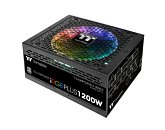NGD Systems Delivers Industry-First 16TB NVMe Computational U.2 SSD
NGD Systems, Inc., the leader in computational storage, today announced the general availability (GA) of the 16 terabyte (TB) Catalina-2 U.2 NVMe solid state drive (SSD). The Catalina-2 is the first NVMe SSD with 16TB capacity that also makes available NGD's powerful "In-Situ Processing" capabilities. The Catalina-2 does this without impact to the reliability, quality of service (QoS) or power consumption, already available in the current shipping NGD Products.
The use of Arm multi-core processors in Catalina-2 provides users with a well-understood development environment and the combination of exceptional performance with low power consumption. The Arm-based In-Situ Processing platform allows NGD Systems to pack both high capacity and computational ability into the first 16TB 2.5-inch form factor package on the market. The NGD Catalina-2 U.2 NVMe SSD only consumes 12W (0.75W/TB) of power, compared to the 25W or more used by other NVMe solutions. This provides the highest energy efficiency in the industry.
The use of Arm multi-core processors in Catalina-2 provides users with a well-understood development environment and the combination of exceptional performance with low power consumption. The Arm-based In-Situ Processing platform allows NGD Systems to pack both high capacity and computational ability into the first 16TB 2.5-inch form factor package on the market. The NGD Catalina-2 U.2 NVMe SSD only consumes 12W (0.75W/TB) of power, compared to the 25W or more used by other NVMe solutions. This provides the highest energy efficiency in the industry.





















